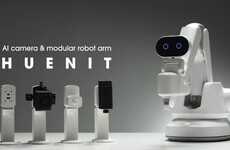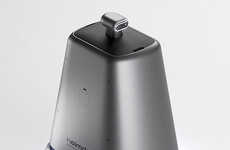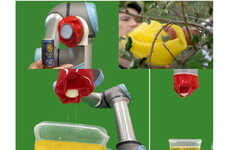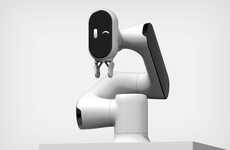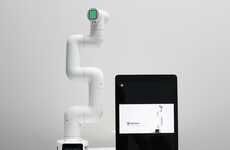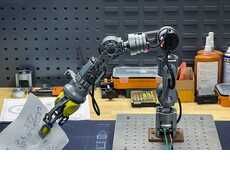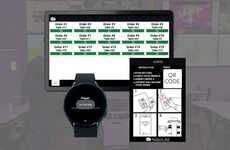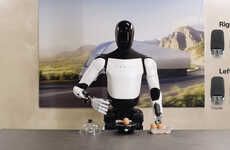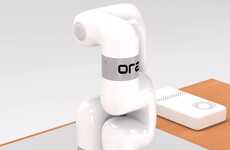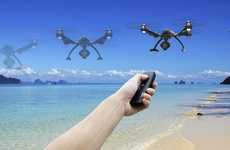
This Robotic Tool Respects People and Objects in Its Surroundings
Charlotte Joyce Kidd — October 26, 2015 — Tech
This robot arm can sense where people and objects are located in its surroundings, and responds accordingly.
The SEAMLESS robot arm was developed by SINTEF, a research center in Oslo. SINTEF previously gained attention for its videos of ping pong-playing robots, a robot that rewrote the Bible in calligraphy and a robocoaster that gave people a robotic amusement park ride.
This time, SINTEF developed a robot arm that adjusts its movements every 10 ms to avoid obstacles in its surroundings. Based on 3D sensor data, the SEAMLESS robot arm can identify blockages in its pathway and move to a different trajectory. The robot arm will be extremely useful in factory assembly line environments, where automated workers can be of limited use due to their inability to interact with and adapt to the human work going on around them.
The SEAMLESS robot arm was developed by SINTEF, a research center in Oslo. SINTEF previously gained attention for its videos of ping pong-playing robots, a robot that rewrote the Bible in calligraphy and a robocoaster that gave people a robotic amusement park ride.
This time, SINTEF developed a robot arm that adjusts its movements every 10 ms to avoid obstacles in its surroundings. Based on 3D sensor data, the SEAMLESS robot arm can identify blockages in its pathway and move to a different trajectory. The robot arm will be extremely useful in factory assembly line environments, where automated workers can be of limited use due to their inability to interact with and adapt to the human work going on around them.
Trend Themes
1. Responsive Robot Arms - The development of robot arms that can adjust their movements in real-time to avoid obstacles opens up opportunities for safer and more efficient automation in various industries.
2. 3D Sensor Technology - The use of 3D sensor technology in robot arms allows for precise spatial perception and the ability to detect and respond to objects and people in real-time.
3. Adaptive Automation - The concept of adaptive automation, where robots can interact with and adapt to the human work environment, holds potential for revolutionizing industries such as manufacturing and assembly.
Industry Implications
1. Manufacturing - The manufacturing industry can benefit from the implementation of responsive robot arms that can work alongside human employees, enhancing productivity and safety.
2. Assembly - The assembly industry can utilize robot arms equipped with 3D sensors to navigate complex environments, increasing efficiency and reducing errors.
3. Robotics - The robotics industry can explore new possibilities for creating innovative robotic arms that can respond and adapt to their surroundings, expanding the scope of automation.
1.1
Score
Popularity
Activity
Freshness


